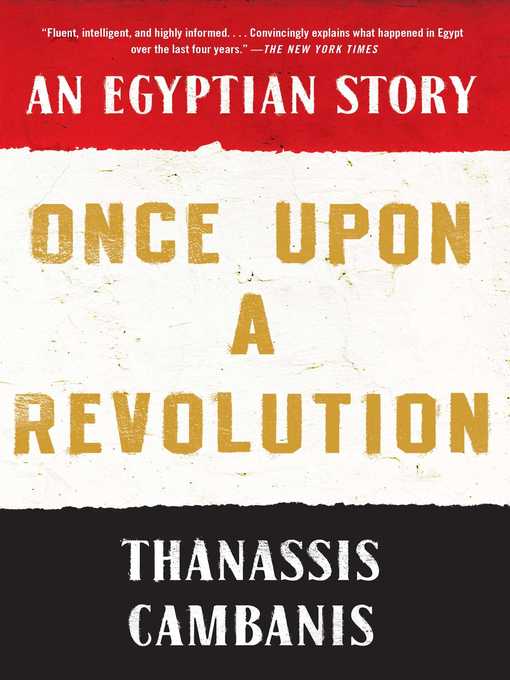
Once Upon a Revolution
An Egyptian Story
فرمت کتاب
ebook
تاریخ انتشار
2015
نویسنده
Thanassis Cambanisناشر
Simon & Schusterشابک
9781451659016
کتاب های مرتبط
- اطلاعات
- نقد و بررسی
- دیدگاه کاربران
نقد و بررسی

December 15, 2014
As the heady days of revolution in Tahrir Square recede further into the past, liberal democracy in Egypt seems increasingly like a pipe dream. Beirut-based journalist Cambanis (A Privilege to Die) follows two leaders of the uprising from the beginnings of their political involvement to the military coup that overthrew Mohamed Morsi. Basem, an unassuming architect, becomes one of the few liberal members of parliament, while Moaz, a Muslim Brother, grows increasingly disenchanted with political Islam. Cambanis eloquently describes post-Mubarak Egypt and the “chaos coursing below the surface, but open conflict still just over the horizon,” as well as the “inability of secular and liberal forces to unify and organize,” which left the political field open to the military apparatus and the secretive Islamists. Crushed by arbitrary military edicts and ascendant puritanism, Egypt’s nascent civil society stalled and sputtered while its freewheeling press degenerated into “a brew of lies, delusion, paranoia, and justification.” The people Cambanis shadows never lose hope, exactly, but he makes clear that they feel as if they are spitting into the wind, struggling to enunciate what the revolution accomplished. Agent: Wendy Strothman, Strothman Agency.

January 1, 2015
In January 2011, the Egyptian people began an uprising that ultimately led to the overthrow of Hosni Mubarak, the country's longtime president. In this highly readable book, journalist and author Cambanis (A Privilege To Die) recounts the trials and tribulations of that revolution. The work is informed by the author's sustained, on-the-ground, astute observations of the unfolding events in Egypt. His focus is on the activities of a number of activists from different walks of life, especially those of two unique individuals who joined the uprising--pharmacist Moaz Abdelkarim, a career activist who grew up in the milieu of the Muslim Brotherhood, and architect Basem Kamel, who had built a successful business and had generally stayed out of politics until the revolt began. As the author explains, both of these figures had to grapple with ambiguities and contradictions in their own thought process, as did most other Egyptians who took part in the rebellion. Ultimately, the movement failed to establish a democratic and accountable political order and the country once again succumbed to a military dictatorship. The author concludes that this was owing to organizational and political shortcomings and an incoherent ideology. VERDICT A welcome addition to the literature on Egypt's uprising and a solid source for the general reader. [See Prepub Alert, 7/28/14.]--Nader Entessar, Univ. of South Alabama, Mobile
Copyright 2015 Library Journal, LLC Used with permission.

























دیدگاه کاربران